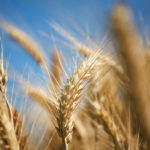Canada Post and its unionized staff have agreed to set up a system in which workers would volunteer to move live animals, such as day-old chicks or bees, during a strike or lockout. The Canadian Union of Postal Workers (CUPW) announced June 14 it has a new agreement with the Crown corporation to move and

Postal workers pledge to move bees, chicks if striking
Postal workers are taking strike votes this month across the country

Antibiotics manure risk requires a rethink
Manitoba researchers say previous studies ignore the interplay of animals’ digestive systems on the drugs
A University of Manitoba research paper may upend the way environmental scientists consider the issue of residual antibiotics in manure. They’re a cause of concern because when they’re fed to animals, a lot of the antibiotics pass right through the animal and into the manure. Scientists have worried that could promote antibiotic resistance. “Often, 90 per

Breeding cattle get market access to Turkey
Exporters of Canadian breeding cattle expect to see another $4.5 million per year in business from a new agreement for market access to Turkey, according to the federal government. Canada’s Agriculture Minister Lawrence MacAulay and Trade Minister Chrystia Freeland on Monday announced an agreement with Turkey on export certificates for Canadian breeding cattle effective “immediately.”

Canadian researcher touts benefits of barley
A Canadian research review has found barley can play a role in reducing harmful types of cholesterol
A research review from a Canadian hospital says there’s a clear link between eating barley and reduced levels of two types of “bad cholesterol” that are associated with heart disease. The paper, written by researchers at Toronto’s St. Michael’s Hospital, was published recently in The European Journal of Clinical Nutrition. It included 14 studies on

Manitoba agriculture economists earn national award
Paper examining impact of supply management on consumer welfare in poorer households was controversial but widely read
A controversial paper on the welfare effects of supply management in poorer households by two University of Manitoba economists has earned a national award. Agricultural economists Ryan Cardwell and Chad Lawley earned the John Vanderkamp Prize from the Canadian Economics Association earlier this month, awarded for the best paper in the journal Canadian Public Policy.

Earls locks in Canadian beef supplies
Vancouver-based dining chain Earls has enlisted a handful of Canadian ranchers and processors to supply beef to about half its stores while matching its criteria for animal care and “ethical farming practices.” The move comes about six weeks after Earls retreated from a plan to source its beef from Creekstone Farms, choosing the Kansas company

Olymel plans major expansion for Quebec hog plant
The meat packing arm of Quebec’s La Coop federee has budgeted $25 million for a major expansion project at its hog slaughter and butchering plant at St-Esprit, Que. Olymel’s expansion plan, announced Tuesday, is expected to bring the plant’s floor space to over 215,000 square feet, up by about 35,000 square feet, and boost its

Audit rips New Brunswick’s oversight of ag fairs
New Brunswick’s provincial government plans to update the legislation governing agricultural fair associations, following an audit that criticizes several departments for lack of oversight on the fair organizations. Given ag fairs’ charitable gaming privileges and exemptions available for property and income taxes, Auditor General Kim MacPherson found “limited provincial processes to monitor compliance” with the

Cal and Cathy Penner named Red River Ex farm family of the year
Dedication to their community and industry made the Penners the right choice, organizers say
Cal and Cathy Penner of Argyle, Man. are the 2016 Red River Ex farm family of the year. The couple operates Calvern Farms, which features a 425-sow farrow-to-finish hog operation and wheat, canola, soybean and oat production on an owned and rented land base. They join 50 other farm families in the province who have

Mobile phones of yesteryear and crops reach a “desperate” stage
Our History: June 1988
Mobile communication options today look different than those offered in our June 16, 1988 issue. Last week’s Our History item was from 1961, which had been driest ever on the Prairies, even drier than the 1930s. That dubious distinction ended in 1988, and our front-page story described crop conditions as “desperate.” The Red River Valley

